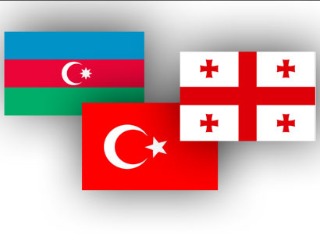“CACI Analyst, November 13, 2013”
Russia Advances Its Position in the South Caucasus
By Armen Grigoryan (the 13/11/2013 issue of the CACI Analyst)
Russia continues to limit Armenia’s capability to make independent political decisions and is planning to increase its military presence in Armenia. Shortly, Azerbaijan and Georgia will face stronger pressure and Russia’s efforts to create a new union of the former Soviet republics will intensify. As Russia is unable to advance its goals through “soft power,” offering no attractive model of governance, democratic political culture, or serious economic benefits, it will increasingly rely on “hard power.” Regional policies devised by the U.S. and EU are becoming insufficient as regional dynamics change and new threats emerge.

Azerbaijan Prepares for Shah Deniz 2
By Mina Muradova (the 13/11/2013 issue of the CACI Analyst)
Azerbaijan is moving from words to action in delivering gas resources from the Caspian Sea to European markets. President Ilham Aliyev has taken the development of the Southern Gas Corridor under his own supervision. A State Commission chaired by First Vice-Premier Eyub Yagubov has been established by a presidential decree and will be responsible for coordinating all issues related to the Shah Deniz project on a government level, as well as the implementation of the South Caucasus Pipeline Expansion Project, the Trans-Anatolian gas pipeline (TANAP) and the Trans Adriatic pipeline (TAP).
“CACI Analyst, October 16, 2013”
Turkey-Georgia-Azerbaijan: Trilateralism and the Future of Black Sea Regional Geopolitics
By Michael Hikari Cecire (the 16/10/2013 issue of the CACI Analyst)
Though one of the quieter subplots in Black Sea geopolitics, the emergence of an increasingly cohesive trilateral grouping between Turkey, Georgia, and Azerbaijan is reconfiguring the regional balance of power. This entente was officiated in the 2012 tripartite Trabzon Declaration, but is rooted in growing economic and strategic interdependencies. While the grouping remains vulnerable to both pressure from Moscow and internal challenges, this trilateral entente has the potential to be the prevailing player in the South Caucasus if it maintains its upwards trajectory, and its interests largely overlap with those of the West.



